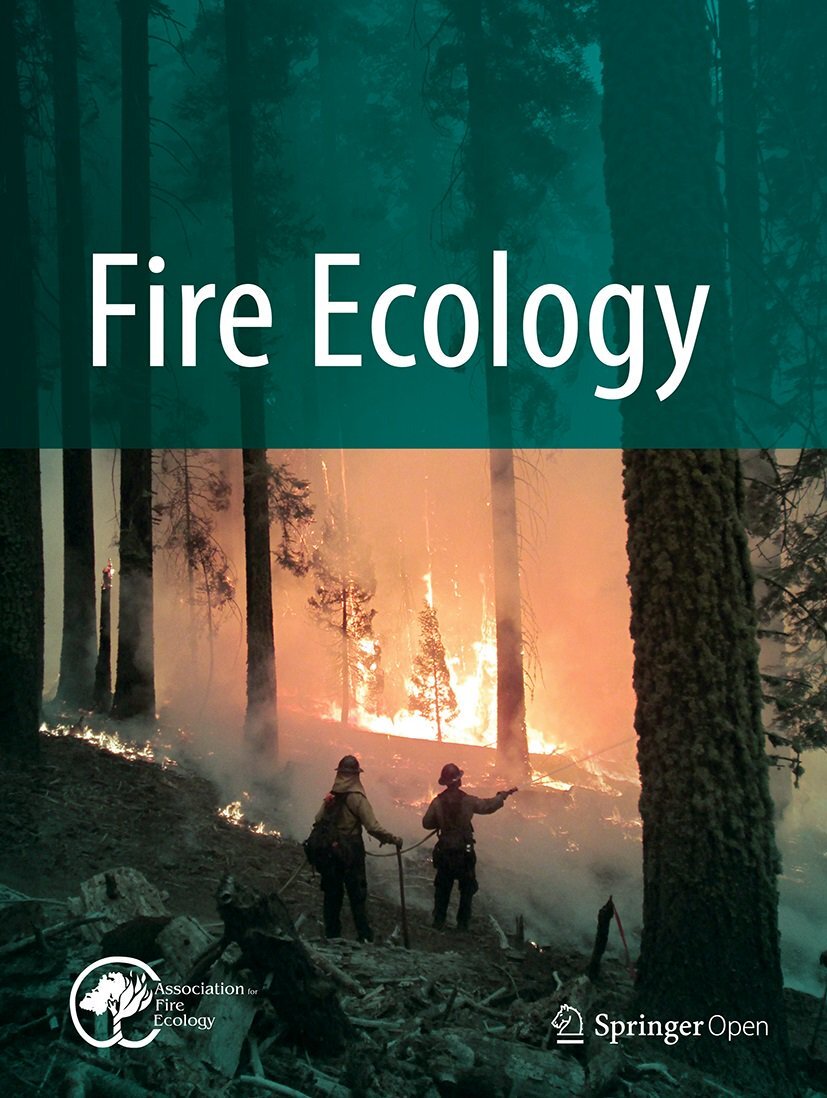Historical fire regimes from red pines (Pinus resinosa Ait.) across the Tension Zone in the Lower Peninsula, Michigan USA
IF 3.6
3区 环境科学与生态学
Q1 ECOLOGY
引用次数: 0
Abstract
Currently, no multiple century fire scar records have been constructed in the Lower Peninsula of Michigan, USA, a region where historical vegetation ranged from prairies and oak-dominated woodlands in the south to conifer-northern hardwood forests and swamps to the north. The western portion of the Huron-Manistee National Forests is located within this strong vegetation transition (i.e., “Tension Zone”) and, based on this study, has well-preserved remnant red pine trees dating back to at least the late 1400s with fire scars dating back to 1523. From fire scar records constructed at four study sites, we documented historical fires as having a wide range of fire intervals and seasonalities. A general timeline of fire activity changes in this region can be described as relatively frequent fire in the pre- and early-European contact eras, variable and generally less fire from this point forward until the period of major logging activities after which fire frequency was significantly increased. Historical fires were associated with drought in the year of fire. Some broad synchronies of fire occurrence existed among sites such as 3 of 4 sites recording fires in years 1717, 1774, and 1829. Interestingly, these years were not exceptionally dry nor among the driest fire years. Future development of fire scar records will likely improve spatio-temporal characterization of regional fire regimes including understanding of human-climate-fire dynamics.美国密歇根州下半岛张力带红松(Pinus resinosa Ait.)的历史火灾机制
目前,美国密歇根州下半半岛还没有多个世纪的火灾疤痕记录,该地区的历史植被从南部的大草原和橡树为主的林地到北部的针叶林-北方阔叶林和沼泽不等。休伦-曼尼斯蒂尔国家森林的西部位于这一植被强烈过渡区(即 "张力区"),根据这项研究,这里保存完好的残存红松至少可追溯到 14 世纪晚期,火痕可追溯到 1523 年。根据在四个研究地点建立的火痕记录,我们发现历史上的火灾有很宽的火灾间隔和季节性。该地区火灾活动变化的总体时间表可以描述为:在与欧洲接触前和接触初期,火灾相对频繁,此后火灾多变且普遍较少,直到主要伐木活动时期,此后火灾频率显著增加。历史上的火灾与火灾发生当年的干旱有关。不同地点之间的火灾发生有一些广泛的同步性,例如在 1717 年、1774 年和 1829 年,4 个地点中有 3 个发生了火灾。有趣的是,这些年份并不是特别干旱,也不是最干旱的火灾年份。未来火痕记录的发展可能会改善区域火灾机制的时空特征,包括对人类-气候-火灾动态的理解。
本文章由计算机程序翻译,如有差异,请以英文原文为准。
求助全文
约1分钟内获得全文
求助全文
来源期刊

Fire Ecology
ECOLOGY-FORESTRY
CiteScore
6.20
自引率
7.80%
发文量
24
审稿时长
20 weeks
期刊介绍:
Fire Ecology is the international scientific journal supported by the Association for Fire Ecology. Fire Ecology publishes peer-reviewed articles on all ecological and management aspects relating to wildland fire. We welcome submissions on topics that include a broad range of research on the ecological relationships of fire to its environment, including, but not limited to:
Ecology (physical and biological fire effects, fire regimes, etc.)
Social science (geography, sociology, anthropology, etc.)
Fuel
Fire science and modeling
Planning and risk management
Law and policy
Fire management
Inter- or cross-disciplinary fire-related topics
Technology transfer products.
 求助内容:
求助内容: 应助结果提醒方式:
应助结果提醒方式:


